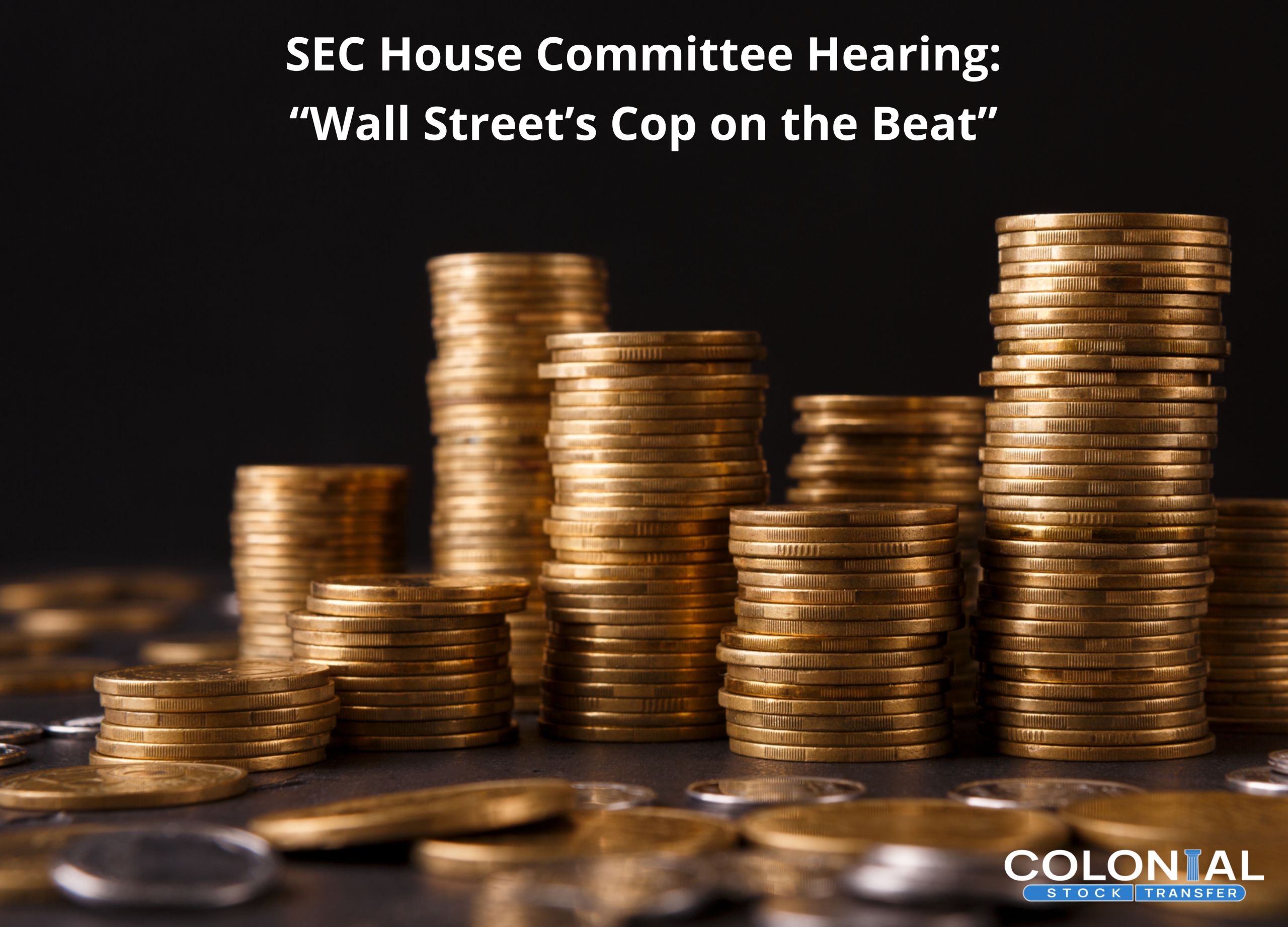
On September 24th of this year, all five SEC commissioners were invited to attend a House Financial Services Committee Hearing. This marked the first time the full commission attended a hearing since 2007, a full dozen years prior. The hearing was officially entitled “Oversight of the Securities and Exchange Commission: Wall Street’s Cop on the Beat.”
Congresswoman Maxine Waters (D-CA) opened the meeting by welcoming the commissioners and expressing concerns about SEC operations. “The SEC is not fulfilling its mission as Wall Street’s cop.” Waters cited the roll-back of the Volcker Rule and the failure of the SEC to implement other suggested regulations. She asserted that the SEC “needs stronger tools to protect investors and punish bad actors.” She also expressed concerns about Facebook’s controversial Libra project. “It appears Facebook is working to create a new global financial system that is intended to rival the U.S. dollar.”
Congressman Patrick McHenry (D-NC) then gave an opening statement. He was critical of the hearing in general. “It’s interesting that the whole commissions is here” McHenry said. He then made a statement regarding his philosophy on the SEC and its three pillars of operation. The pillars are as follows.
(1) to protect investors;
(2) to maintain fair, orderly, and effective markets;
(3) to facilitate capital formation.
According to McHenry, the most important of the SEC’s three pillars is the third. That pillar, McHenry argues, encapsulates the first two. He reasons that without capital formation there would be no markets to keep in order or investors to protect. McHenry then pressed the importance of keeping compliance costs low for public companies, lest the markets cramp up. “when considering publicly traded companies in which to invest, American investors have roughly half the number of companies than they did compared to twenty years ago.”
Jackson’s Opening Statement
Next came opening statements from each of the commissioners, including newcomers Jackson and Lee. Jackson took the time to re-list his three recommendations for policy intervention.
First, he would like to see the four-day 8-K filing notice requirement shortened. He believes that insiders often trade during this four-day gap. He believes, therefore, that a reduction of this reporting window would also be a reduction in an insider-trading window. His hope is to minimize the amount of time in which illegal traders can organize and act.
Next, he recommends a limiting of stock-buyback programs. This is consistent with his past talks, where Jackson has argued it is often company insiders selling back. He also believes that company performance generally declines after a stock buyback program.
His final recommendation was to require public companies to disclose their political expenditures. He advocates this in the case of both direct and indirect spending. He suggests money is often filtered through candidates to further the political causes of executives and owners.
Committee Questions
Several of the SEC commissioners spoke about the strategic plan for 2018-2022. This plan includes a focus on the long-term interests of ‘main-street investors’. After an opening argument from Chairman Clayton, each member of the House Financial Services Committee was given five minutes to question the commission.
Questions largely featured themes of cybersecurity and digital currency. Congresswoman Water’s sentiments of concern over the Libra were echoed by some. The commissioners insisted on avoiding the development of new positions during the hearing, as it did not constitute an official meeting of the commission. As a result, their answers on matters of future conduct or policy were broad. Chairman Clayton and other commissioners expressed sympathy for the concerns of the committee. General commitments of attention to raised issues were made.




